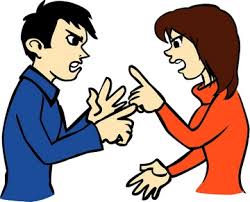conflict
英 [ˈkɒn.flɪkt]
美 [ˈkɑːn.flɪkt]
- n. 冲突,矛盾;斗争;争执
- vi. 冲突,抵触;争执;战斗
使用频率:

记忆方法
将“conflict”拆解为“con”和“flict”。联想“con”与“confront”,想象两个场景面对面发生冲突,即“flict”,以此来记住“conflict”表示冲突或争执的含义。
以上内容由AI生成, 仅供参考和借鉴
中文词源
conflict 冲突
con-, 强调。-flict, 鞭子,击打,词源同flagellate(鞭笞), afflict.
英语词源
- conflict
-
conflict: see profligate
- conflict (v.)
- early 15c., from Latin conflictus, past participle of confligere "to strike together, be in conflict," from com- "together" (see com-) + fligere "to strike" (see afflict). Related: Conflicted; conflicting.
- conflict (n.)
- early 15c., "armed encounter, battle," from Old French conflit and directly from Latin conflictus (see conflict (v.)). Meaning "struggle, quarrel" is from mid-15c. Psychological sense of "incompatible urges in one person" is from 1859 (hence conflicted, past participle adjective). Phrase conflict of interest was in use by 1743.
权威例句
- 1. The ethnic populations are so intermingled that there's bound to be conflict.
- 各民族人口如此杂居,肯定会发生冲突。
- 2. This was a straight conflict of directly opposed aims.
- 这是完全对立的目标之间的正面冲突。
- 3. The time has come to put an end to the conflict.
- 结束冲突的时候到了。
- 4. He has attempted to find a peaceful solution to the Ossetian conflict.
- 他试图寻求和平解决奥赛梯冲突的方案。
- 5. He's looking for a way out from this conflict.
- 他正在想办法摆脱这一纷争。